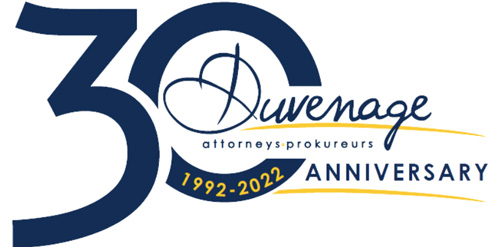TATTLEWARE – MONITORING EMPLOYEE PRODUCTIVITY
An increasing number of international employers are using sophisticated software to monitor the productivity of their employees.
This type of software has become more prevalent since the Covid-19 pandemic; colloquially it has become known as “tattleware”.
Internationally, there has been a widespread use of this software, and its use will become prevalent in South Africa in the near future, as the shift to more remote working conditions continue.
With employees working from home, there is a stronger possibility of there being more distractions therefore, in order to protect the business’ interests, this software system should enable employers or managers to monitor, and time track their employees’ activities and productivity while working remotely.
This technology involves but is not limited to; the tracking of emails, location monitoring, and more subtle monitoring of an employee’s behaviour which includes key stroke monitoring, eye track monitoring and the monitoring of certain applications that stand idle for too long.
THE LEGALITIES OF “TATTLEWARE”
In using this type of software, it is important to balance the rights of employers and employees.
While the employee’s right to privacy is not an absolute right and is limited in terms of Section 36 of the Constitution, it is important to balance this right to privacy against the employer’s right to conduct its business and monitor its interests.
APPLICABLE LEGISLATION – POPIA (AS FROM 01 JULY 2021)
In terms of the Protection of Personal Information Act (“POPIA”), an employer is entitled to process certain personal information of employees, subject to meeting specific conditions.
Depending on exactly what an employer is doing when monitoring its business’ interests, this may well amount to monitoring and processing of personal information of the employee.
Employers must ensure compliance with all legislation and more particularly, the employees constitutional rights. The simplest way of achieving this, is by obtaining the employees’ consent to the processing of certain personal information and to argue that it is a legitimate business interest of the employer to monitor an employee in his or her personal space.
Employees should be assured that the processing of their personal information by using these monitoring tools, will be in compliance with POPIA.
RICA (EFFECTIVE SINCE 2005)
RICA is also applicable where communications are being monitored. Again, the employees’ consent is required, alternatively, reliance should be placed on one of the exceptions in the legislation.
The employer is however, required to inform the employees that they will be monitored in the workplace.
THE INVOLVEMENT OF EMPLOYEES IN THE PROCESS
It would be a good employee relations practice to engage and to consult thoroughly with employees before implementing any “tattleware software” as the use of “tattleware” will naturally create an impression of a lack of trust.
To mitigate against these negative connotations, consultation is essential. It is also critical that all legislation is complied with before the implementation of any “tattleware software”.
It has been estimated that by the end of 2021, 80% of employers globally will be using some sort of “tattleware”.
Accordingly, it is an employer’s prerogative to monitor an employee’s performance and if this involves the use of “tattleware”, so long as employees are consulted, have been informed about the monitoring and are assured that it is in compliance with the legislation, employers are in a position to implement the “tattleware software”.
Written by: DUNSTAN FARRELL





